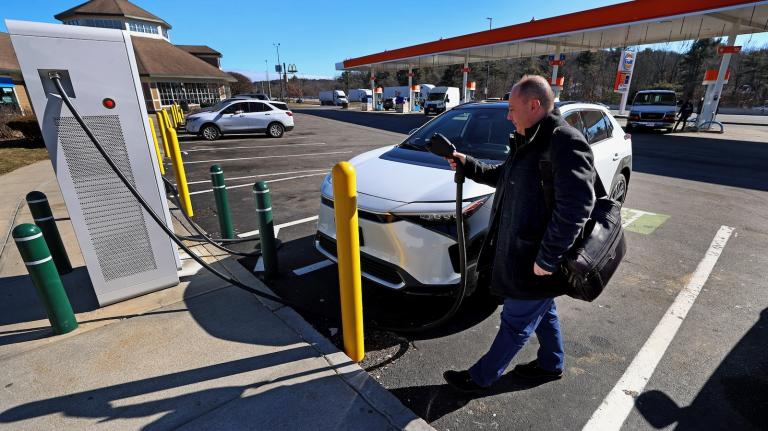Phoebe Connelly and Chelsea Ross have a detailed and incredibly heartening story on urban agriculture in In These Times. It focuses on urban ag projects that target inner city "food deserts," where liquor stores outnumber groceries 20-to-1 and the most easily available food is fried. It’s not just about food, though:
“We are what most folks would consider organic, but we’re not certified,” the Food Project’s Burns says. “That’s not as important to us. We’re in the community; folks can just come by and see our practices. It’s about transparency.”
Accessibility is at the heart of what these groups call food security. “It’s about everyone having access to culturally appropriate and nutritional food at all times,” says Danielle Andrews, who heads up farming for Food Project’s Dorchester plots.
“We’re using food to make social connections,” says Growing Power’s Allen. “It’s not just about growing food — it’s about practices and how people form relationships, get comfortable with each other and learn to communicate through really owning the food system.”
Particularly fascinating is the way this movement bumps up against the much more profitable but elite-focused sustainable food movement:
“It’s important to us that the food we grow here is available to people in the community,” says the Food Project’s Andrews. “That means it’s not sold at the prices it would be if it was sold downtown.” Selling at high-end markets is an issue that the Food Project grapples with because it has the potential to allow the organization to sustain itself. Right now, the group makes around $20,000 off the produce grown on its Dorchester land. If the Food Project sold it at the Copley Square farmers’ market, opposite the Neiman Marcus, Andrews estimates they could get twice as much. “I think there is a sense at the organization that it could lend something to the urban agriculture movement if we were economically sustainable.”
So far, however, the Food Project is opting out. “Our community is patient with what goes along with urban agriculture. Sometimes our compost smells, or we’ll have a little rat infestation,” Andrews says. “If we were selling downtown, it could become uncomfortable. I don’t think it would make a whole lot of sense.”
The central element in making urban ag sustainable, according to the Food Project, is land ownership. There’s nothing more primordially American, more conducive to the spirit of self-reliance and pride that fuels this country’s origin myths, than cultivating one’s own piece of land. Today more than ever.
